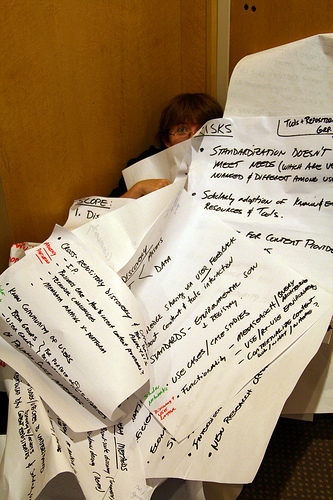I recently listened to The Minimalists’ Podcast episode about money. It inspired me to review my thoughts and plans about money in my life and revise my current plans.

The Minimalists say, and I agree, “There is no such thing as good debt.†I took on a considerable loan when I bought my condo in 2014. I regularly pay more than my mortgage payment to pay off my loan faster. After listening to this podcast, I was inspired to play around with an online early mortgage payoff calculator. It showed me that I can pay off my loan significantly faster and avoid paying a substantial amount of interest by paying a bit more than I currently am each month.
As a minimalist, my overhead expenses each month are not that high. I don’t mind foregoing some temporary luxuries if it means saving over $25,000 in the long run.
Listening to this episode also made me revisit some of my other financial goals for the year – like fully funding my retirement account. I usually wait until the end of the year to do this, but there’s no reason to delay if I can do it earlier.
To date, my savings have been part of my personal and business checking accounts; however, after revisiting my financial goals, I want to open a separate savings account as well. This will be an account to deposit money that is “spoken for,†like my quarterly estimated taxes, charitable giving, retirement, as well as building a “rainy day fund†that contains at least six months worth of expenses. This can also be the account I use to set aside funds to pay off my mortgage faster and to save up for big purchases and travel.
Separating out my savings will make it easier to see how much I can save month-to-month and how much I really need to fund my life and run my business.
If you want to know more about my experience with minimalism, I suggest you read about the “packing party†I did in 2014 and got rid of everything that no longer added value to my life.

